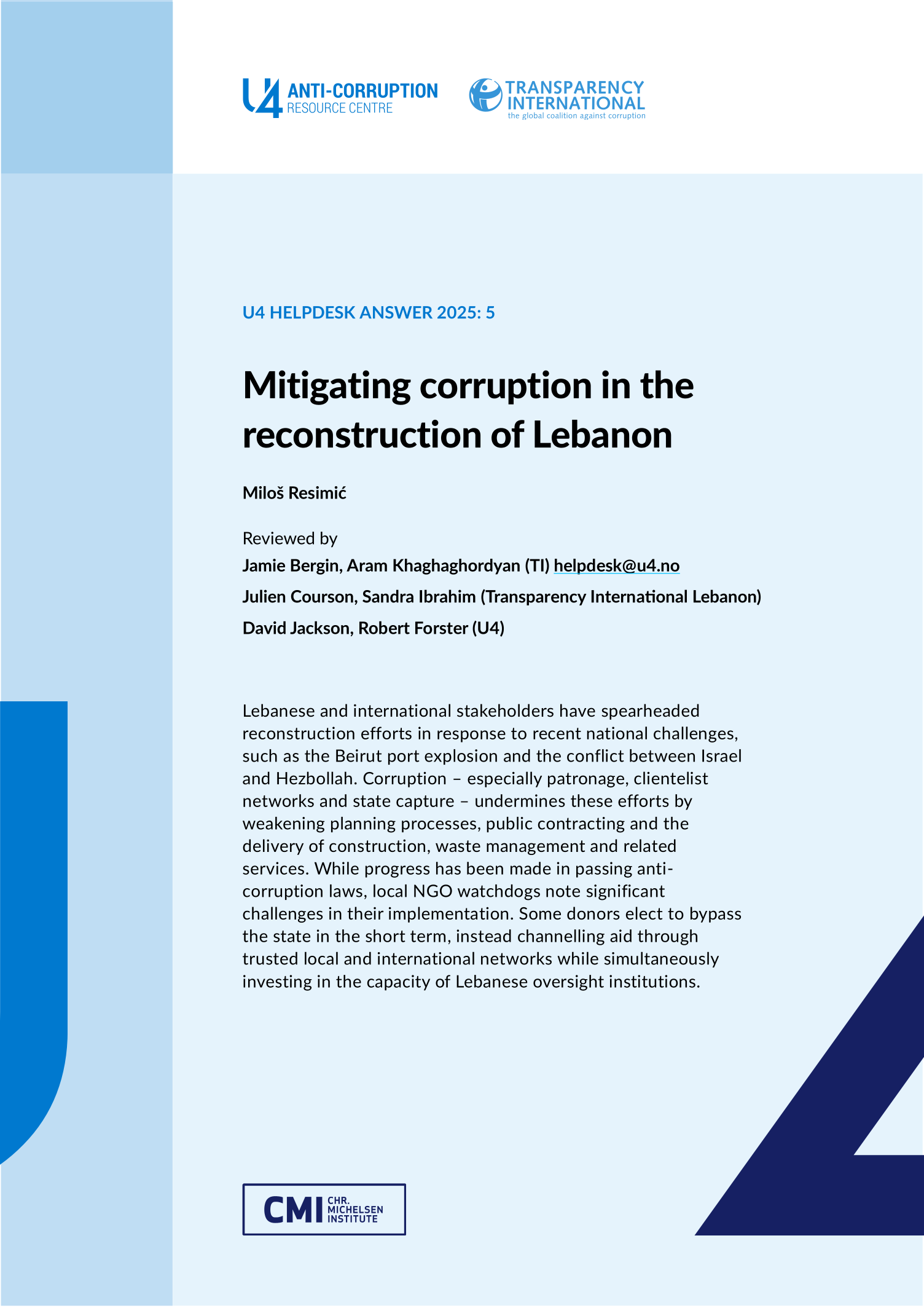Main points
- Since 2019, Lebanon has faced a serious economic collapse, political paralysis, the Beirut port explosion and an escalation of the conflict between Israel and Hezbollah, all of which have necessitated significant reconstruction efforts from national and international stakeholders such as the Reform, Recovery and Reconstruction Framework (3RF).
- Lebanon's prevailing political sectarianism has fostered corruption through patronage, clientelist networks and state capture, all of which have the potential to undermine reconstruction efforts, especially in the design and planning phases, public contracting and delivery of related services.
- Despite the adoption of anti-corruption legislation and the establishment of institutions like the national anti-corruption commission (NACC) and the public procurement authority (PPA), implementation remains weak due to insufficient technical and financial capacities, poor levels of compliance with the legislation and resistance from political elites.
- Citing corruption risks and political uncertainty, some international stakeholders have opted to channel reconstruction aid through trusted networks while simultaneously working to strengthen Lebanese oversight institutions.
- International donors’ prior interventions in Lebanon highlight several strategies to mitigate corruption risks and ensure funds reach intended beneficiaries, including conducting comprehensive assessments of emergency needs, due diligence of implementing partners, enhanced transparency and accountability measures such as publishing project related documents on public monitoring platforms, as well as conducting and ensuring independent audits.


